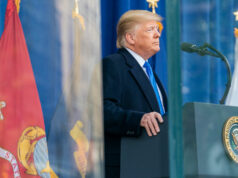Washington Post’s Bezos defends decision to end presidential endorsements

THE WASHINGTON POST owner Jeff Bezos on Monday defended the newspaper’s decision not to endorse a US presidential candidate after a report that more than 200,000 people had canceled their digital subscriptions following the move.
The decision blocked an endorsement of Democrat Vice-President Kamala Harris, the National Public Radio (NPR) report said, and many people in messages on the newspaper’s website criticized Mr. Bezos, the billionaire founder of Amazon.com and rocket company Blue Origin.
Mr. Bezos, in an opinion piece late on Monday, said “most people believe the media is biased” and The Washington Post and other newspapers needed to boost their credibility.
No candidate was informed or consulted about the decision and that there was “no quid pro quo,” Mr. Bezos said, adding that there was no connection between the decision and a meeting between Republican presidential candidate Donald Trump and Blue Origin’s chief executive officer (CEO) on the same day.
“Presidential endorsements do nothing to tip the scales of an election,” Mr. Bezos wrote. “What presidential endorsements actually do is create a perception of bias. A perception of non-independence. Ending them is a principled decision, and it’s the right one.”
The subscription cancellations as of midday represented about 8% of the paper’s paid circulation of 2.5 million subscribers, which includes print as well, reported NPR, which said a series of columnists had resigned their positions in protest.
The Washington Post declined to comment on the report when contacted by Reuters.
In a post on Friday, William Lewis, The Washington Post’s publisher and CEO, said the newspaper would not be making an endorsement of a presidential candidate in the Nov. 5 election, nor in any future presidential election.
“We are returning to our roots of not endorsing presidential candidates,” Mr. Lewis wrote.
“The Washington Post’s decision not to make an endorsement in the presidential campaign is a terrible mistake,” wrote 20 columnists in an opinion piece on the Post’s website, adding that it “represents an abandonment of the fundamental editorial convictions of the newspaper that we love.” — Reuters



